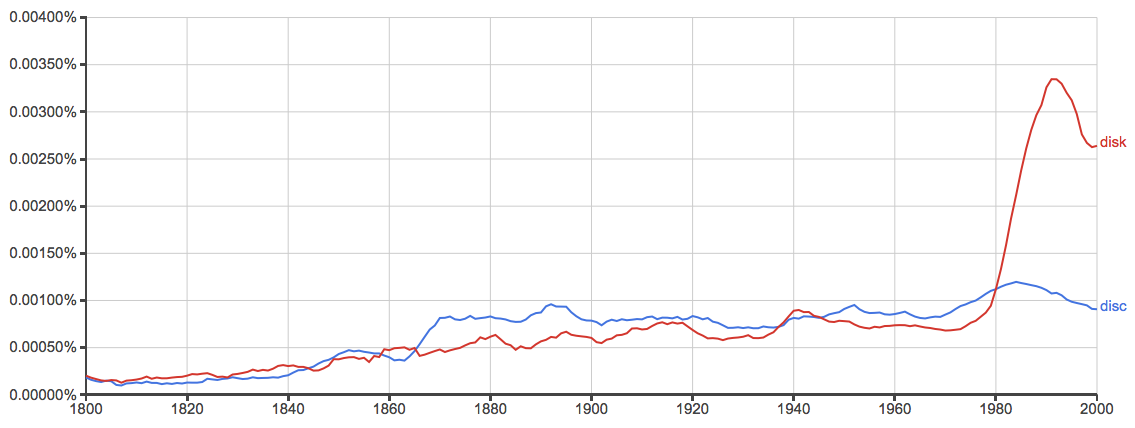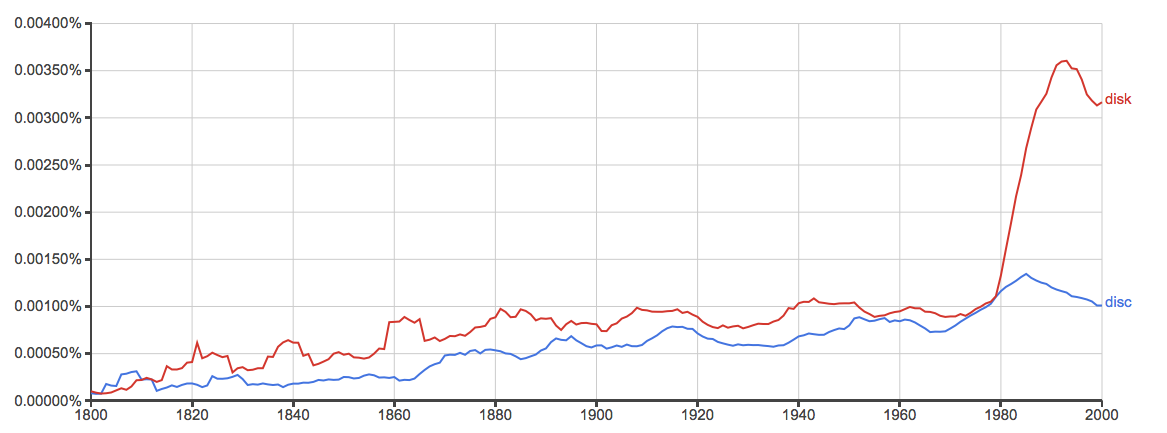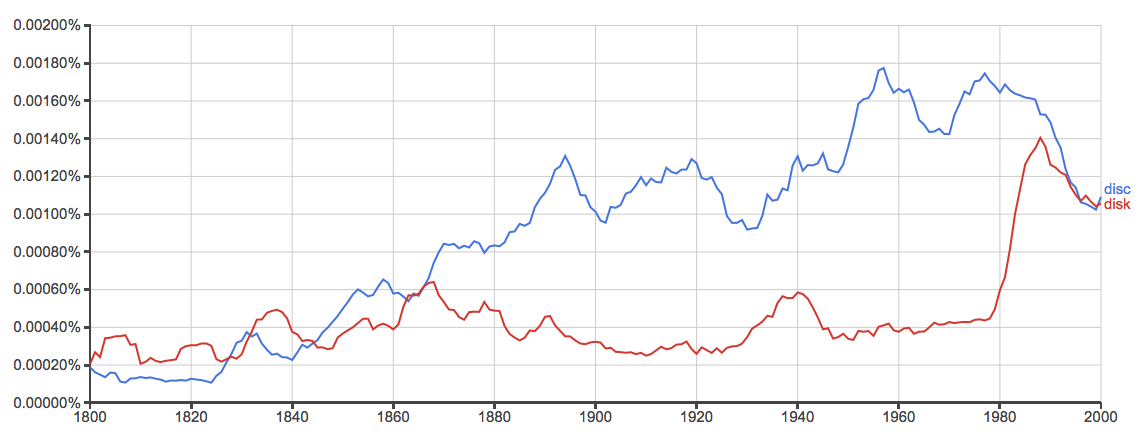There are a lot of homophones in English that confuse both native and ESL writers alike. The two words disc vs. disk, however, aren’t exactly homophones.
They are the same word, but—oddly enough—they are used to refer to different things. And there isn’t any universal consensus on which spelling is used for what.
What is the Difference Between Disc and Disk?
The words disc and disk both have the same meaning. If you go to a dictionary and look up either word, you will see some variation of this definition,
- A thin, flat, circular object or plate; a round, flattened object.
But, despite having the same meaning, disc and disk are used to refer to different things.
In this post, I want to outline which word refers to what as things currently stand. Should you use disc or disk in your sentence?
When to Use Disc
Disc Spelling in American English
 In American English, disc (with a –c) is the less common variant and is used only when referring to five things:
In American English, disc (with a –c) is the less common variant and is used only when referring to five things:
- A phonograph record.
- An optical disc, such as an audio compact disc or a videodisc.
- A tool found on a plow, disc harrow.
- A component of a brake system, disc brakes.
- Disc jockey.
In American English, disk is much more common and is the preferred spelling for all general references to thin circular objects (see below).
Disc Spelling in British English
While disk is the preferred choice in American English (with disc referring to just a select few things), the opposite has been true in British English for some time.
For most of the 20th century, there has been a marked preference for disc in British English, while disk has been preferred in America. This British preference has been lessened some, however, in the last 20 years or so with the near universal spelling disk to refer to computer storage devices (see below).
Still, disc remains the standard choice for all general references to thin circular objects in British English, as well as the five uses found above in American English and few other things like celestial discs, spinal discs, etc.
When to Use Disk
Disk Spelling in American English
As I mentioned above, disk (with a –k) is the more usual spelling in American English. It is used with things like flying disk, celestial disks, spinal disks, and most commonly, computer disks.
- Do you want to go out and throw some disk?
- I slipped a disk in my back; I can’t play today.
- I think the disk drive in my computer is about to crash.
This is also in accordance with both AP and Chicago Styles, both of which call for disc to be used to refer to CDs, brakes, disc jockeys, etc., and for disk to be used to refer to most everything else.
Disk Spelling in British English
 In 1896, the Oxford English Dictionary recognized disk as “the earlier and better spelling” of the two. Unfortunately for them, this was not the variant that became popular among British speakers and writers.
In 1896, the Oxford English Dictionary recognized disk as “the earlier and better spelling” of the two. Unfortunately for them, this was not the variant that became popular among British speakers and writers.
Disc (with a –c) remains the standard choice in British English, but disk (with a –k) is used to refer to all things computer related.
- Disk drive.
- Floppy disk.
- Hard disk.
- Magnetic disk.
Gaining Popularity of Disk over Disc
Since the advent and widespread use of computers, disk has been gaining popularity in places like Great Britain and increasing its command in places like America. It is likely that it will someday overtake and supplant disc is all uses in British and American English.
To show how the computer industry has changed the frequency of this spelling, look at the below chart. There is massive spike in the use of disk during the build up and widespread commercialization of computers.

Here is the chart focusing just on American English.

As you can see, disk was used much more frequently and became even more frequently used after about 1980.
If we focus on British English, the chart is very interesting, indeed.

Again, before the widespread use of computers, disc was with much greater frequency among British writers, but since 1980, disk has increased its share overwhelmingly.
These charts, of course, simply measure the total frequency of each spelling, without any consideration given to meaning or context. You might look at the British English chart and say, “They are used to the same extent, why differentiate them?”
The spelling disk may be used at the same frequency as disc, but that is most likely because people are taking about computers much more than they are their car’s brakes.
The usage differences I outlined above still hold true. The charts are just helpful to visualize trends.
Summary
The difference between disk vs. disc has geographical and dialectical considerations. Making the correct choice for your audience, disk or disc, is important for your writing.
Disk is preferred in American English, with a few exceptions.
Disc is preferred in British English, with the exception of computer related references.
Contents
